Six College of Victoria scientists in the fields of science, social sciences, engineering, and humanities have been elected to the Royal Society of Canada (RSC), a council of distinguished scholars and leaders acknowledged with the country’s optimum academic honour.
Professor Hossein Nassaji (linguistics) is elected as a new fellow, Natalie Ban (Environmental Experiments), John Burke (Biochemistry and Microbiology), Heather Castleden (Community Administration), Alan McConnachie (NRC-Herzberg, Physics and Astronomy), and Stephanie Willerth (Biomedical Engineering) join as new users to the University of New Students, Artists and Researchers. The society’s peer-elected recipients are decided on for their academic excellence and their “remarkable contributions” to the arts, humanities and sciences, and Canadian community life.
Natalie Ban, Environmental Research
Marine conservation scientist Natalie Ban is transferring us towards a planet exactly where people today and ecosystems not only coexist but prosper.
Her eyesight embraces diversity (of persons, procedures and views) and balances the requirements of human communities with the requirements of biodiversity and ecosystem conservation. Her study focuses on coastal and maritime units on subject areas these types of as marine protected areas, coastal governance, and local weather improve.
Significantly of Ban’s investigate is finished in partnership with Initial Nations and other people. With guidance of companions, her method uplifts Indigenous know-how holders and weaves conventional knowledge into biodiversity conservation.
Performing with associates is so critical to me due to the fact it makes sure that my study is applicable and can affect administration conclusions. I’m honoured to have obtained the trust of associates, and frequently seek to do analysis to improve the two biodiversity conservation and the well-staying of coastal communities.
—Natalie Ban, Royal Society of Canada member
John Burke, Biochemistry and Microbiology
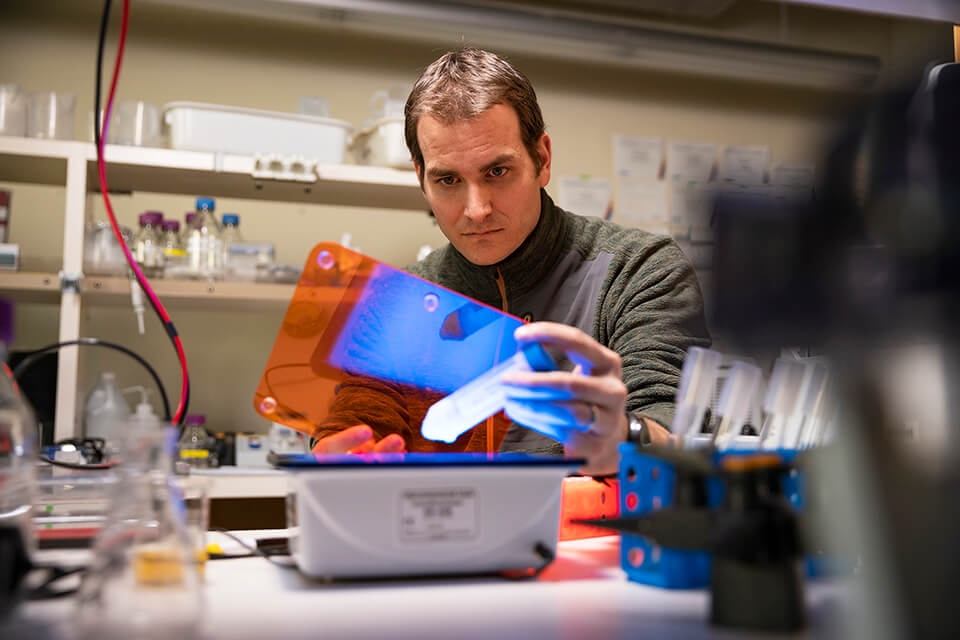
Staying naturally curious opened doors in the global investigation local community for John Burke. Just one of his most important investigation pursuits is in how open science concepts can be effectively carried out in novel drug discovery. His practical experience operating with drug discovery groups in academia, business, and open science non-revenue has led to diverse varieties of collaborative function, as groups openly participate with many industrial and academic partners. To that close, Burke founded intensive worldwide collaborative networks to advance investigate in direction of novel therapeutics.
Burke’s slicing-edge methods of looking into lipid-signalling proteins and their position in human wellbeing are top to novel therapeutics for cancer, malaria and viral infections.
Burke is psyched about how his new job with the Royal Modern society of Canada can aid people today fully grasp just how investigate has an effect on their each day life.
I strongly believe that essential essential science study presents obvious gains to society. I want to converse the rewards of curiosity driven, essential science investigation since apparent, accessible scientific interaction is tricky but so worthwhile simply because it connects the lives of Canadians with investigation.
—John Burke, Royal Society of Canada member
Heather Castleden, Community Administration
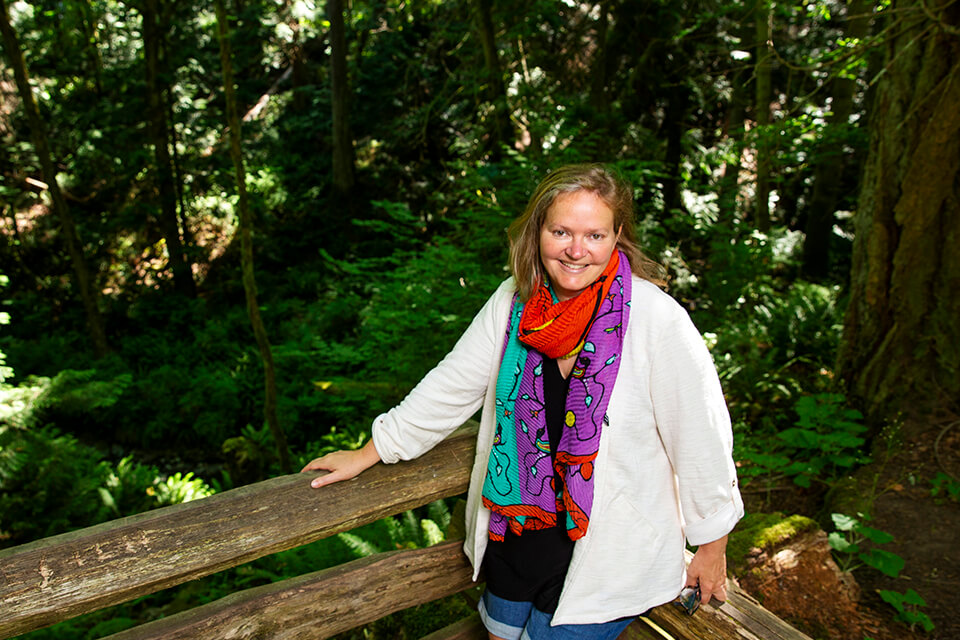
Heather Castleden is a neighborhood-engaged human geographer who joined UVic in July as the inaugural Influence Chair in Transformative Governance and Planetary Wellbeing. She has invested two decades performing research in partnership with Indigenous peoples across the state by aligning her know-how with their priorities for sovereignty and resurgence in governance, together with treaty implementation, water administration and renewable electrical power development.
Castleden also concentrates her energies on critiquing college study ethics and accountability, and decolonizing settler colonialism in institutional options. She is also checking out the intersections concerning human wellbeing and environmental health and fitness concerning how to make just and equitable electricity transitions.
I experience a feeling of urgency to try various matters and try out them now. Although some men and women are prepared to make alter, other folks require to be brought together. I imagine that is the job of universities, to deliver that investigate evidence to present how it can materialize, and UVic is perfectly positioned to do that.
—Heather Castleden, Royal Modern society of Canada member
Alan McConnachie, NRC-Herzberg, Physics & Astronomy
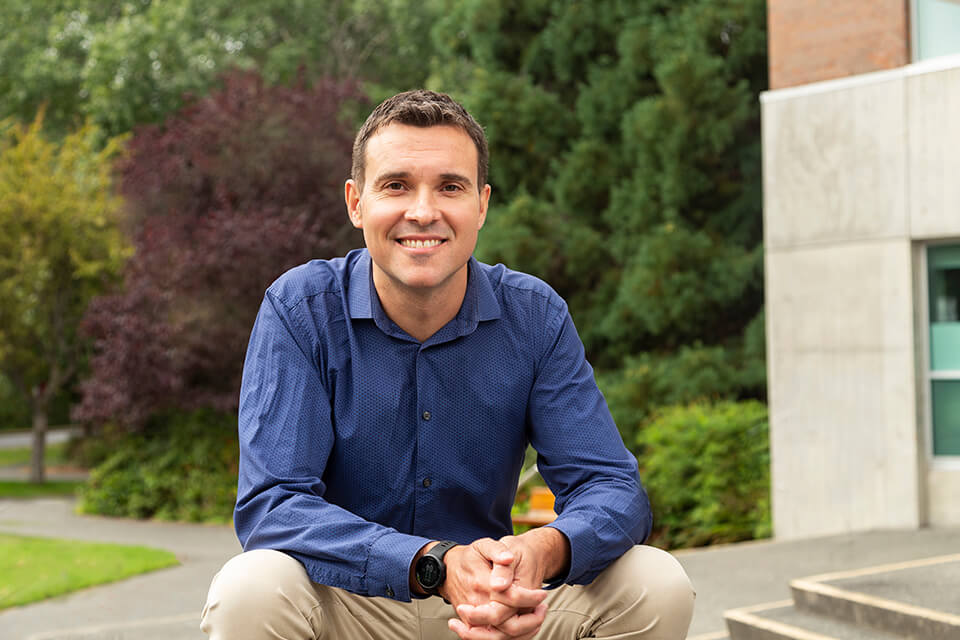
Exactly where to get started? Alan McConnachie is generally answering this basic problem, and it is led him to not just notice new aspects of our universe but to establish systems to increase our understanding of it.
As McConnachie grew to become far more mindful of the boundaries of present engineering, his operate took a turn. He pivoted from the function of observer of the universe to a extra active function and began building and creating greater applications and technology with which to observe. His operate has enabled researchers to find out even more about galaxies.
He thinks in the ability of collaboration, of bringing together men and women who can enhance each other’s skills to reply concerns that might otherwise be out of their grasp as individuals.
His exploration has brought area dwarf galaxies into focus, recognized how the extremely info he was sharing would be replaced with even far better knowledge as quickly as the work was printed. Distant galaxies, he says, are stepping-stones to even additional discoveries.”
Victoria is a superb spot to do astronomy study. Exclusive alternatives exist due to the fact of the particular marriage between the Dominion Astrophysical Observatory, the University of Victoria and the Astronomy Study Centre. Acquiring new equipment to raise our powers to notice has been an exciting direction for me. I acquire excellent satisfaction in serving to many others do fantastic science!
—Alan W. McConnachie, Royal Modern society of Canada member
Hossein Nassaji, Linguistics
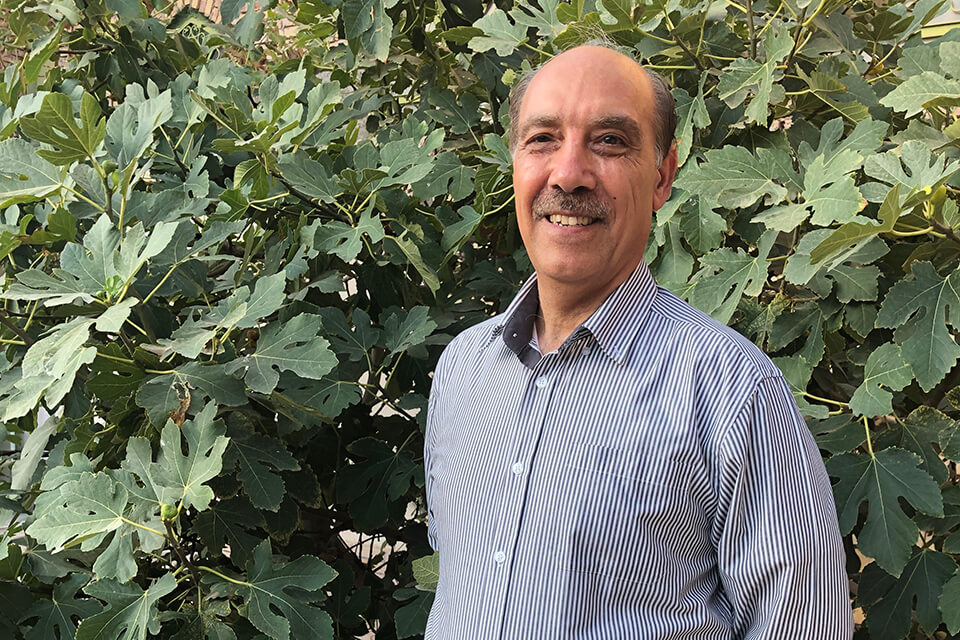
As a result of many years of varied and innovative investigation on 2nd-language discovering procedures and tactics, Nassaji has manufactured a long lasting affect on our understanding of the techniques a second language can be realized and taught.
His groundbreaking reports on the impacts of pupil-trainer interactions in the classroom and on the special contributions of lessen-amount linguistic and cognitive processes included in the acquisiton of language have shaped teacher training applications and pedagogical approaches to language instruction across the globe.
Nassaji’s exploration contributions contain 14 publications and volumes, 80 content articles in leading educational journals, 38 reserve chapters and assessments, 80 refereed meeting papers, and 65 keynote and plenary addresses delivered at conferences in Canada, the US, England, Taiwan, China and Japan.
He is now the co-editor of Language Teaching Analysis, a foremost journal in language pedagogy, and the editor of the Grammar Training Volume of the TESOL Encyclopedia of English Language Educating by Wiley.
My present-day investigate focuses on interactional responses and how it helps language acquisition. My desire in this spot has developed out of my previously perform in 2nd language interaction, form-focused instruction and classroom discourse, and from my wish to superior realize how languages are uncovered in instructional contexts. I am honoured my contributions have been identified by the Royal Culture of Canada.
—Hossein Nassaji, Royal Society of Canada fellow
Stephanie Willerth, Biomedical Engineering
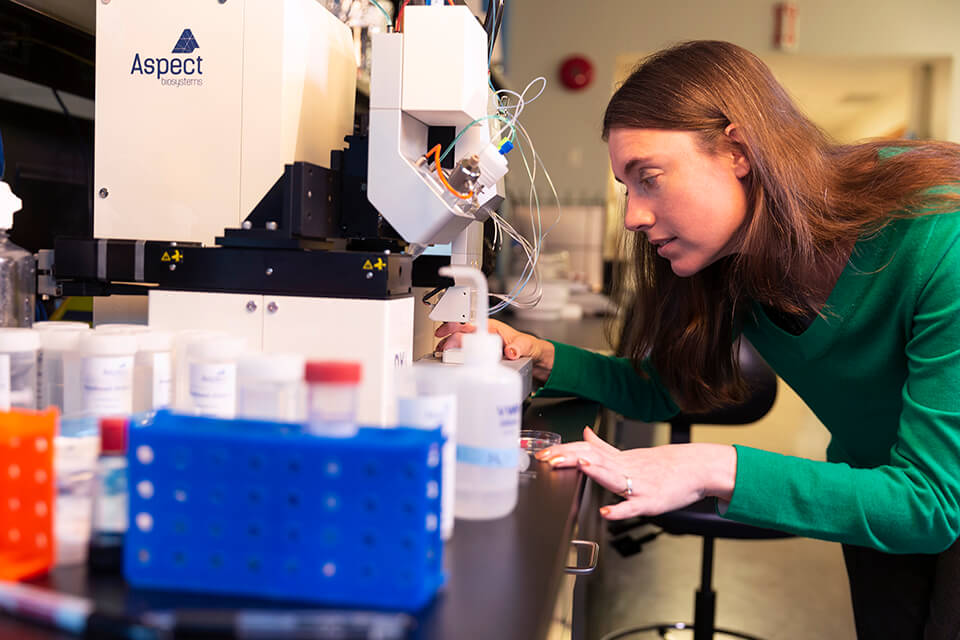
Stephanie Willerth is a really achieved and passionate leader in the promptly increasing and large-affect fields of tissue engineering and regenerative medication.
Her acclaimed interdisciplinary Willerth Lab at UVic investigates innovative neural tissue engineering treatment options for illnesses and disorders of the mind and spinal wire, this sort of as Alzheimer’s, Parkinson’s, Various Sclerosis and spinal wire harm. Not too long ago, her workforce utilized 3D bioprinting—a strategy of printing dwelling tissue—using stem cells from people suffering from these ailments to deliver customized tissue versions in the lab. These types can serve as tools to monitor potential medicine for their efficacy.
Willerth, whose lab has qualified much more than 90 really qualified people today at the undergraduate, graduate and submit-graduate stages, has printed various papers in the area of 3D bioprinting tissues, received several higher-profile awards, and co-started a spin-off a corporation termed Axolotl Biosciences, which creates bioinks employed in tissue engineering.
I’m so thrilled by the potential of stem cells to regenerate or replicate damaged human tissue —especially the quite elaborate neural tissues located in the human mind and spinal cord. In time, getting able to engineer neural tissue styles in the lab will serve as useful tools for drug screening that can forecast the toxicity and efficacy of certain drugs for neurological diseases and issues, these kinds of as Parkinson’s and Alzheimer’s.
—Stephanie Willerth, Royal Society of Canada member


More Stories
How Social Sciences Shape Our Modern World
Why Social Sciences Matter More Than Ever
The Hidden Power of Social Sciences in Policy Making